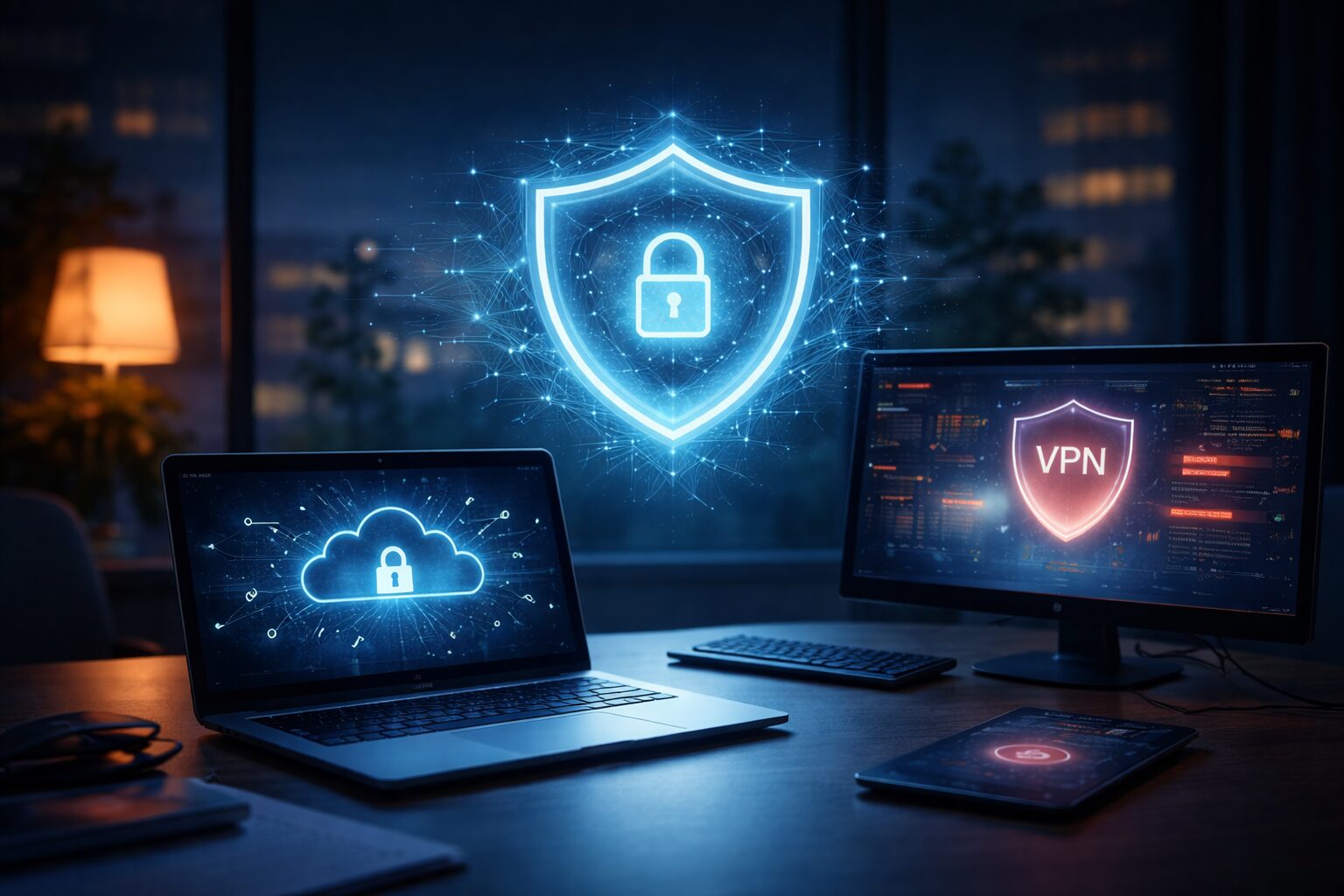One thing keeping IT security directors and executives up at night is ensuring a secure organization. Coupled with that concern is not overworking the in-house security staff while keeping cyber threats at bay. Hiring more staff is an option to stay agile. However, finding the best talent is a budget and time-consuming task that can take months. If you add a managed security provider (MSP) to your IT team, you immediately access the services your organization needs. This article will review what to look for a managed security provider.
Importance of a Managed Security Services Provider
Choosing the right managed security services provider (MSSP) can be a fundamental step for your organization if you are looking to upgrade your cybersecurity posture to meet your business needs. Security solutions you have in place determine how your infrastructure, data, clients, processes, and people prepare for a cyber attack.
You should expect a provider to improve business efficiency. The value they bring saves time and utilizes customized services appropriate for how your organization operates. Furthermore, the right MSSP ensures your security operations are legally compliant.
Most importantly, an MSSP works to mitigate threats and reduce costs if an attack occurs. They support network security foundations within your organization and help your business build and grow without fearing a security breach will cause it to collapse.
9 Considerations When Choosing an MSSP
Data protection was a difficult task when networks and devices were only accessible in the office. Now with remote employees and cloud-based services, information security is more challenging.
As a result, help from an MSP is an attractive option for companies. However, with so many providers offering a range of services, choosing the right MSSP presents its own set of challenges. It is important to choose a security provider that delivers the outsourcing services you need with a pricing model that makes sense for your budget.
Before signing a service level agreement (SLA) partnership, make sure they have a full view of the cyber threat landscape. The provider should have an in-depth understanding of the tactics hackers use to infiltrate network systems.
As an extension of your IT department, make sure they use security solutions and tools centering on the following nine elements.
1. Industry Expertise
A provider with extensive security expertise about the specific threats your industry face is crucial. Having experience in your sector gives an MSP the advantage over bad actors. They know how to protect your organization and combat cyber attacks.
For example, educational institutions have different needs from healthcare companies or financial institutions. Partnership with a provider that has served other organizations helps to ensure comprehensive solutions address your concerns.
2. Proactive Security Monitoring
Top managed security service providers offer proactive monitoring solutions 24/7. By using intelligent threat hunting and threat detection practices, they can identify malicious malware, ransomware, or other activities in real time.
Additionally, you should look for a provider that anticipates current and future issues. That way, the MSP can prevent an issue from becoming a serious problem. Otherwise, you could operate in reaction mode after an attack sabotages your systems and endpoints.
With an expert MSP, your organization’s information security system receives regular updates. In addition, being on offense gives your IT team a stronger security posture.
3. Rapid Response
Once you learn that an MSSP offers 24/7 IT services, find out their response time. Ideally, your managed service provider should have an open hotline number for help desk support. Whether for an urgent matter or suspicious activity, your concerns should be a priority.
Not only should they respond quickly, but you should also receive an ETA on a resolution. Status updates as necessary are also important, with a clear point of contact on issues.
An incident response process should include detailed notifications and remediation processes. Doing so ensures threats to your IT system are quickly shut down before spreading across your organization. Onsite or virtual assistance with high-priority incidents is an added benefit.
Expect this process to be outlined in the SLA. However, reviews and testimonials from current or past clients also inform your decision-making process. In addition, knowing what other companies experienced offers insight into their commitment to keeping your infrastructure safe.
4. Knowledge of Current Cybersecurity Technologies
There are small businesses and large corporations that have existed since the 70s or longer. But unfortunately, making small steps to refresh their networks and security techniques leaves them exposed to cyber threats.
Conversely, cybersecurity is an evolving field that requires current security knowledge and tactics. Therefore, you need a provider fluent in the latest developments to offer the range of security technologies your organization requires.
Technologies come in many forms for detection, prevention, containment, and remediation. The provider should offer a range of intrusion detection services for network and endpoint visibility. Some essential services include:
• Security information and event management (SIEM)
• Endpoint detection and response (EDR)
• Managed detection and response (MDR)
• Vulnerability scanning
Look for an MSP that also provides ongoing education and training to their staff. This ensures they are prepared to use the right solutions for the latest threats.
5. Operates To Ensure Compliance Standards
Meeting regulatory compliance standards is a daily responsibility for your organization and the provider you choose. The right MSSP knows that preparation begins long before a scheduled annual audit.
Before an agreement is signed, the provider should demonstrate their monitoring capabilities from a compliance perspective that meets PCI DSS, HIPAA, GDPR, and other standards. Likewise, the managed IT security provider should also operate within compliance standards for their role in maintaining business systems.
6. Balance Between Human Intelligence and Technology
To understand the behavior patterns of hackers, your provider should have a threat intelligence team. This way, you know they are aware of past attacks and ongoing chatter in the cybercriminal world.
Balancing human and machine intelligence gives you a full view of the threat landscape. Experts must corral scattered data and make connections from different sources, combining these strengths to make better decisions.
On the one hand, human intelligence provides intuition, understanding, and context. On the other hand, machine intelligence makes contributions of accuracy, scalability, and speed. Together, your organization optimizes processes when the MSP knows how to apply the strengths of each.
7. Customized Security Plan From a Managed Service Provider
An experienced MSSP offers a host of services, such as issue resolution, security consulting, endpoint management, and server support. With a focus on enabling your organization to operate at maximum efficiency, a trusted IT service provider creates a strategic plan to adapt your technology over time.
Determining the specifics of what your organization needs occurs through various methods and devices, including:
• Threat intelligence – data collection for analyzing and processing to understand targets, attack behaviors, and motives. A provider can make informed security decisions backed by data to develop proactive fights against bad actors.
• Penetration testing – a simulated attack on your IT network to evaluate its current security status. Using the same tools hackers employ can reveal weaknesses and insights into devising the right plan.
• Firewalls – a security device used for monitoring and filtering outgoing and incoming network traffic. The provider uses your previously established security policies to assist with creating a barrier to cyber attacks.
Choosing the right managed security provider helps to fortify your IT security infrastructure. As a result, your security posture improves and translates into business continuity. You can feel confident in making an information security investment that allows you to operate at maximum efficiency.
8. Responsiveness and Communication
Clear and easy communication protocols ensure that your MSSP quickly responds to security threats. Updates to your in-house security team are equally important so they are immediately aware of any necessary changes.
Constant changes to your primary point of contact are not a good sign. There are no reassurances that you are receiving the best service and the right level of attention needed.
9. Quality Round-the-Clock Service
Even if your office hours are the standard Monday-Friday, 9-5 hours, your organization’s network, data, and endpoint devices still need 24/7 security. Therefore, you want to find a managed security service provider that operates under the same schedule.
Threat actors do not take weekends or holidays off, and neither should quality round-the-clock services. However, this does not mean automated machines respond to incidents. Instead, your IT team should be able to contact the provider’s security operations center (SOC) at any time.
Your organization requires a level of care that responds to specific security issues. Whether by text message, phone call, or email, protecting your business operations means having a reliable way to contact an MSSP.
Shut Down Cyber Threats Before They Create Major Problems
Meriplex gives you comprehensive managed security services tailored to your budget and protection needs. In addition, we can work with existing technology to optimize resources without compromising cybersecurity coverage.
Our industry-leading defensive and offensive expertise comes with a range of intelligent technologies. We deliver an integrated incident response to detect and take action against potential cyber threats across all endpoints connected to your network.
Contact us to speak with one of our security experts and learn more about how we deliver tangible results to improve your cybersecurity posture.



